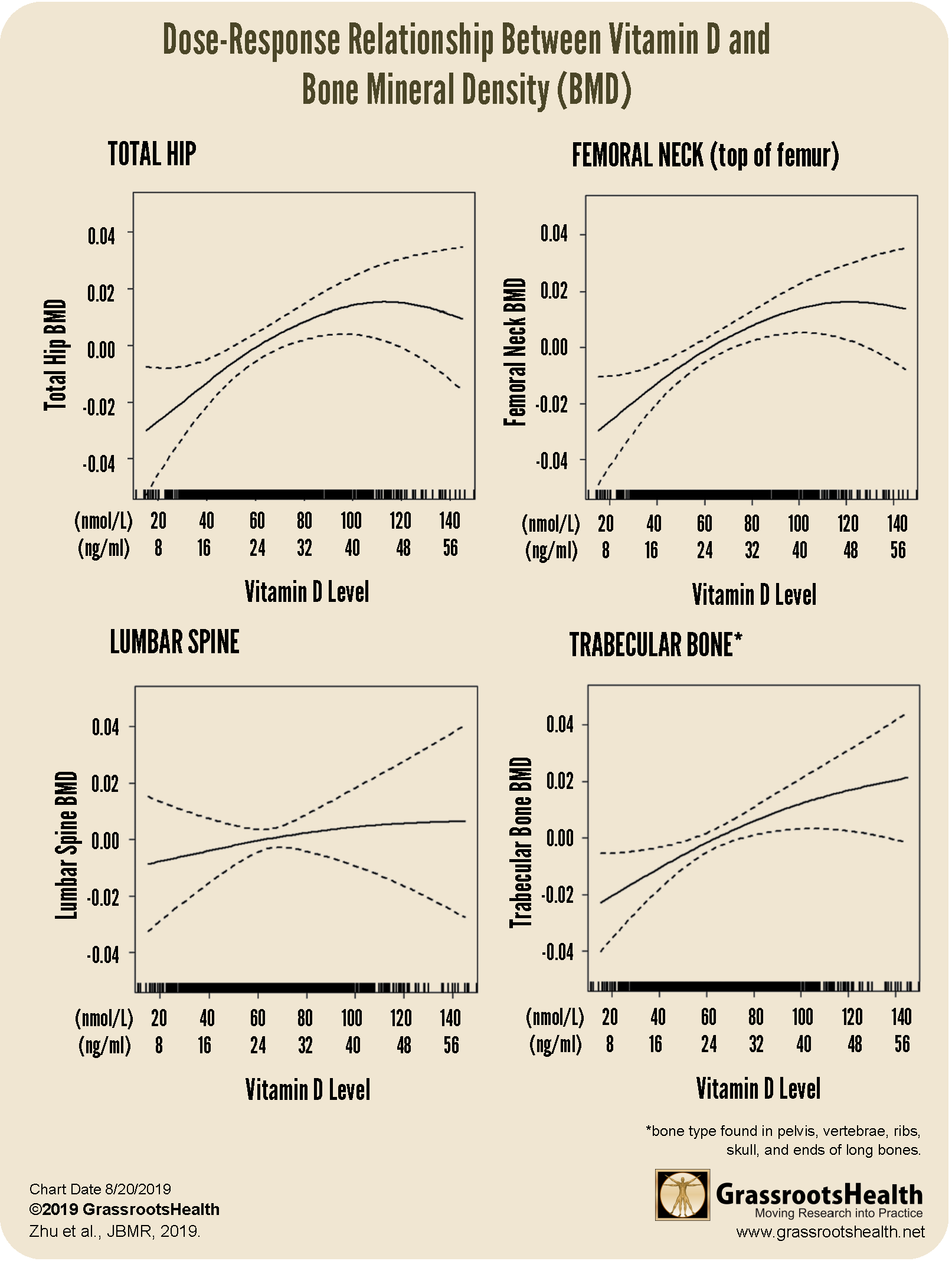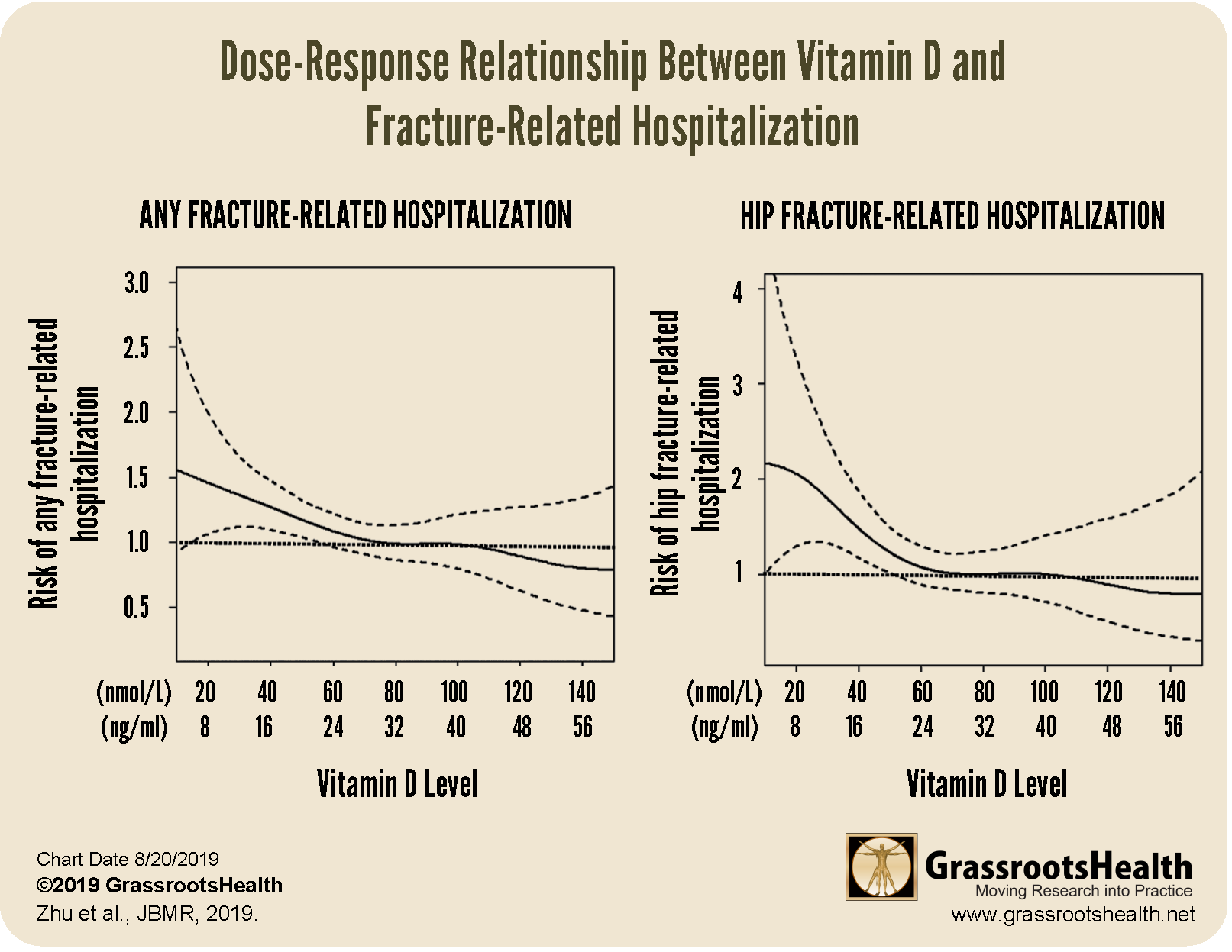Published on August 27, 2019
 Vitamin D plays a significant role in bone health. In June 2019, results from a study assessing the dose-response relationship between vitamin D level and bone quality and risk of fracture-related hospitalization among 1,348 Australian women aged 70 to 85 years were published.
Vitamin D plays a significant role in bone health. In June 2019, results from a study assessing the dose-response relationship between vitamin D level and bone quality and risk of fracture-related hospitalization among 1,348 Australian women aged 70 to 85 years were published.
What were the findings of the study?
The research team found that bone mineral density, a measure of bone quality, was higher with increasing vitamin D levels (plateauing around 40 ng/ml (100 nmol/L)), as shown on the charts below.
Also, as vitamin D levels increased, risk of hip fracture and any fracture-related hospitalization decreased, as shown on the charts below. Specifically, those with vitamin D levels at or above 30 ng/ml (75 nmol/L) had a 39% lower risk of hip fracture (P=0.02) and a 30% lower risk of fracture-related hospitalization (P=0.007) compared to those with levels less than 20 ng/ml (50 nmol/L).
Are you getting enough vitamin D?
Testing your vitamin D level regularly and taking daily steps to keep it at a target level of 40-60 ng/ml (100-150 nmol/L) is important for all stages of health. Find out your levels today! Log on to the shop (click the link below) to get your tests and see for yourself if your levels can be improved.
Make sure you track your results before and after, about every 6 months!
How can I track my sun exposure and vitamin D levels?
To help you track your sun exposure and vitamin D levels, GrassrootsHealth has created an online tracking system called myData-myAnswers. You can also track your dietary intake and supplement use to see how both sun exposure and vitamin D from food and supplements impact your vitamin D levels. Check it out today!








